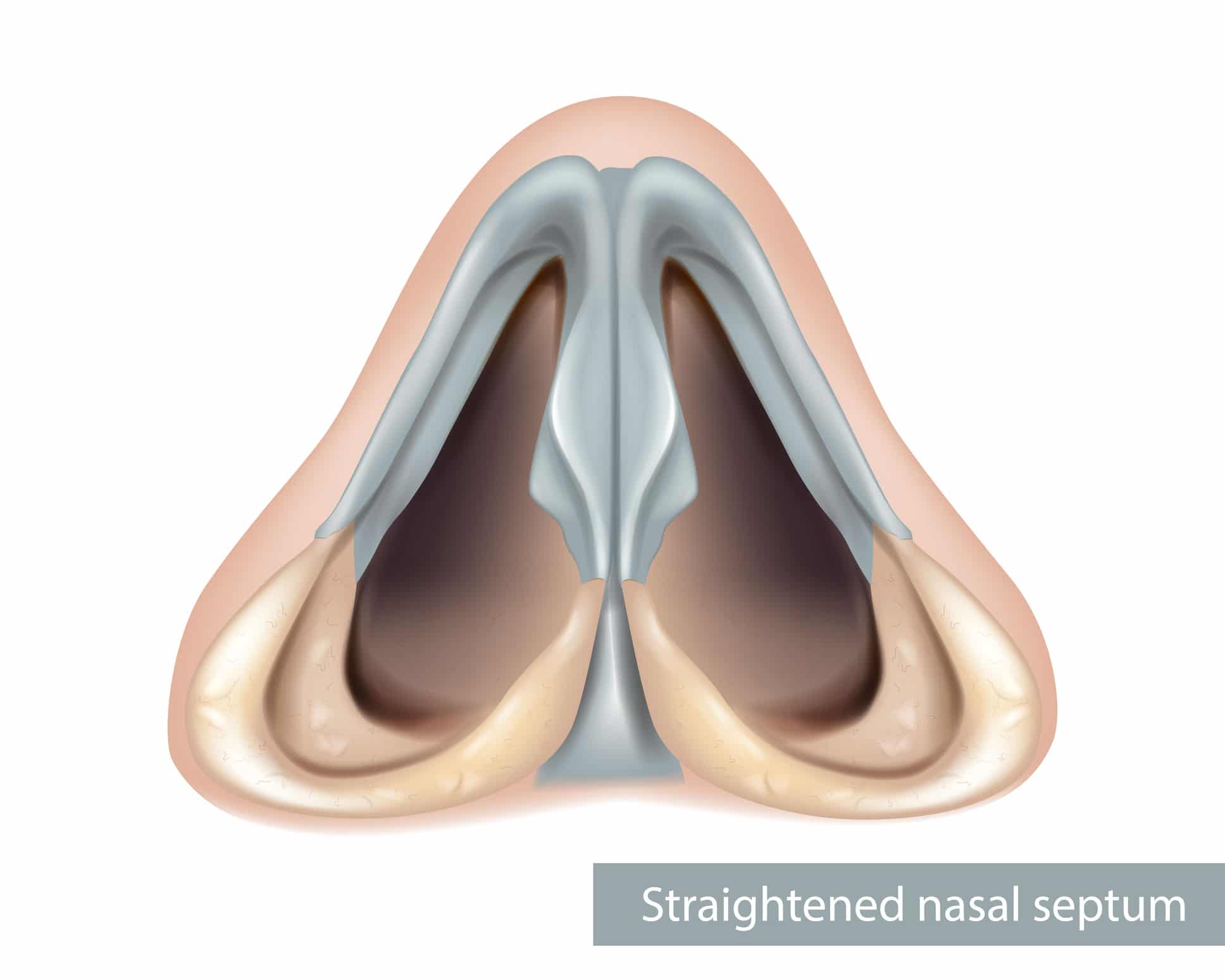
A deviated septum can cause significant breathing difficulties and related health issues. If you’re a veteran experiencing these problems, understanding how the Department of Veterans Affairs (VA) addresses deviated septums is crucial. This article will explain the VA’s policies regarding deviated septums, including whether the VA provides treatment, how to pursue disability compensation, and what factors influence VA ratings.
Are you a veteran struggling with a deviated septum and wondering about VA benefits? Dealing with a deviated septum can be a literal pain in the nose, affecting your breathing and overall quality of life. The good news is, the VA recognizes this condition, and understanding your options is the first step toward relief. In this article, we’ll cover everything from getting treatment to pursuing disability compensation, giving you the straight skinny on navigating the VA system.
- Does the VA fix a deviated septum?
- Will the VA pay for repair of a deviated septum?
- How to get a VA disability rating for a deviated septum.
Does the VA Fix a Deviated Septum?
Will the VA provide treatment for my deviated septum?
Yes, the VA does provide treatment for a deviated septum if it is deemed medically necessary. The VA offers a range of medical services to enrolled veterans, and this includes addressing conditions like a deviated septum.
If you’re experiencing symptoms like difficulty breathing, frequent nosebleeds, or sinus infections, it’s essential to get a diagnosis from a qualified medical professional. Once you have a diagnosis, you can seek treatment through the VA healthcare system. The VA will evaluate your condition and determine the appropriate course of action, which may include medication, nasal sprays, or, in more severe cases, surgery (septoplasty) to correct the deviation.
How do I get evaluated for a deviated septum through the VA?
To get evaluated for a deviated septum, start by scheduling an appointment with your primary care provider at your local VA medical center. During the appointment, describe your symptoms in detail, including how they impact your daily life.
Your VA provider will conduct a physical examination and may order additional tests, such as a nasal endoscopy or CT scan, to confirm the diagnosis. If a deviated septum is confirmed and deemed to require treatment, your provider will discuss the available options and refer you to a specialist, such as an otolaryngologist (ENT doctor), for further evaluation and treatment.
What if I need surgery to fix my deviated septum?
If surgery (septoplasty) is recommended, the VA can provide this service. Septoplasty is a surgical procedure to straighten the nasal septum, correcting the deviation and improving airflow through the nasal passages.
The VA will assess your overall health and determine if you are a suitable candidate for surgery. If approved, the surgery will be performed at a VA medical center by qualified surgeons. Post-operative care and follow-up appointments will also be provided to ensure proper healing and recovery.
VA Disability Compensation for Deviated Septum
Can I receive VA disability compensation for a deviated septum?
Yes, you may be eligible for VA disability compensation for a deviated septum, but it depends on whether the condition is service-connected. This means that the deviated septum must be related to your military service.
To receive disability benefits, you’ll need to demonstrate a direct connection between your military service and your deviated septum. This can be achieved by providing evidence such as medical records, service records, and lay statements (statements from yourself or fellow service members) that support your claim. If your deviated septum is a result of an injury during service, or if it was aggravated by your service, you may be entitled to compensation.
What evidence do I need to prove service connection for my deviated septum?
To prove service connection for a deviated septum, you will need to gather and submit relevant evidence to the VA. The key components of a successful claim include:
- Medical Records: These records should document the diagnosis of your deviated septum, as well as any treatment you have received.
- Service Records: Your military service records can help establish a link between your condition and your time in service. Look for any incidents or events during your service that may have caused or aggravated your deviated septum.
- Lay Statements: Statements from yourself, family members, or fellow service members can provide valuable insight into how your deviated septum is related to your military service. These statements can describe specific incidents or observations that support your claim. the veterans words about the situation is a key factor in service connection and VetsForever will assist you drafting one up for free. Remember, you don’t need a costly nexus letter. A statement in support of your claim is just as important, if not more so!
- Medical Nexus: A medical nexus is a statement from a qualified medical professional that establishes a link between your deviated septum and your military service. This statement should explain how your condition is related to events or exposures during your time in the military.
What if my deviated septum was pre-existing but aggravated by military service?
Even if you had a pre-existing deviated septum before joining the military, you may still be eligible for disability compensation if your condition was aggravated by your military service. This is known as aggravation.
To claim aggravation, you’ll need to provide evidence showing that your deviated septum was worsened beyond its natural progression due to your military service. Medical records documenting the condition before and after your service can be particularly helpful in these cases. Make sure to clearly articulate how your military duties or specific incidents exacerbated your condition.
VA Rating for Deviated Septum
How does the VA rate a deviated septum?
The VA rates a deviated septum under 38 CFR § 4.73, Schedule of Ratings – Ear, Nose, and Throat, diagnostic code 6522, nasal septum, deviation of:
- 10% Rating: With obstruction of breathing.
- 0% Rating: Without obstruction of breathing.
The severity of your symptoms determines the percentage. If your deviated septum causes noticeable breathing obstruction, you are more likely to receive a 10% rating. If it doesn’t significantly impact your breathing, you may receive a 0% rating, which is non-compensable.
What factors influence the VA’s rating decision for a deviated septum?
Several factors influence the VA’s rating decision for a deviated septum. These include:
- Severity of Symptoms: The more severe your symptoms, such as difficulty breathing, frequent nosebleeds, and sinus infections, the higher your rating is likely to be.
- Impact on Daily Life: The extent to which your deviated septum affects your ability to perform daily activities, such as working or sleeping, can influence the rating.
- Medical Evidence: Comprehensive medical documentation, including examination reports, test results, and doctor’s opinions, is essential for supporting your claim.
- Consistency of Evidence: The consistency of your medical and service records in documenting your condition and its relationship to your military service is also important.
Can I increase my VA rating for a deviated septum?
Yes, it is possible to increase your VA rating for a deviated septum if your condition worsens or if new evidence becomes available that supports a higher rating. To pursue an increased rating, you’ll need to file a new claim with the VA.
Include updated medical evidence that demonstrates the increased severity of your symptoms and their impact on your daily life. A statement from your doctor explaining how your condition has deteriorated can be particularly helpful. Ensure that all new evidence is clearly linked to your military service to maintain service connection.
Additional Considerations
Secondary Conditions
A deviated septum can lead to secondary conditions that may also be eligible for VA disability compensation. Common secondary conditions include sinusitis, sleep apnea, and chronic headaches.
If you develop any of these conditions as a result of your deviated septum, be sure to include them in your VA disability claim. Provide medical evidence linking these conditions to your deviated septum, and explain how they further impact your health and quality of life. The VA may assign additional disability ratings for these secondary conditions, increasing your overall disability compensation.
Appealing a VA Decision
If your VA disability claim for a deviated septum is denied or if you disagree with the assigned rating, you have the right to appeal the decision. The appeals process involves several options, including:
- Higher-Level Review: Request a review of your claim by a senior VA claims adjudicator.
- Supplemental Claim: Submit new and relevant evidence to support your claim.
- Board of Veterans’ Appeals (BVA): Appeal your case directly to the BVA for a decision by a Veterans Law Judge.
It’s essential to understand the appeals process and deadlines, as missing a deadline can result in the dismissal of your appeal. Consider seeking assistance from a qualified veterans’ advocate or attorney to help you navigate the appeals process and present the strongest possible case.
Conclusion & Key Takeaways
Understanding the VA’s policies regarding deviated septums can significantly impact your access to healthcare and disability benefits. Whether you need treatment for your condition or are seeking compensation for its impact on your life, knowing your rights and the steps to take is crucial.
Navigating the VA system can be complex, but with the right information and support, you can successfully access the benefits you deserve. Remember, VetsForever is here to assist you in drafting a statement in support of your claim for free, emphasizing that a costly nexus letter isn’t always necessary. Your words about the situation are a key factor in service connection.
Key Takeaways
Does the VA provide treatment for a deviated septum?
Yes, the VA provides treatment for a deviated septum if it is deemed medically necessary, including medication, nasal sprays, or surgery (septoplasty).
Can I receive VA disability compensation for a deviated septum?
Yes, you may be eligible for VA disability compensation if your deviated septum is service-connected, meaning it’s related to your military service.
How does the VA rate a deviated septum?
The VA rates a deviated septum at 10% with obstruction of breathing and 0% without obstruction of breathing, based on the severity of symptoms.

